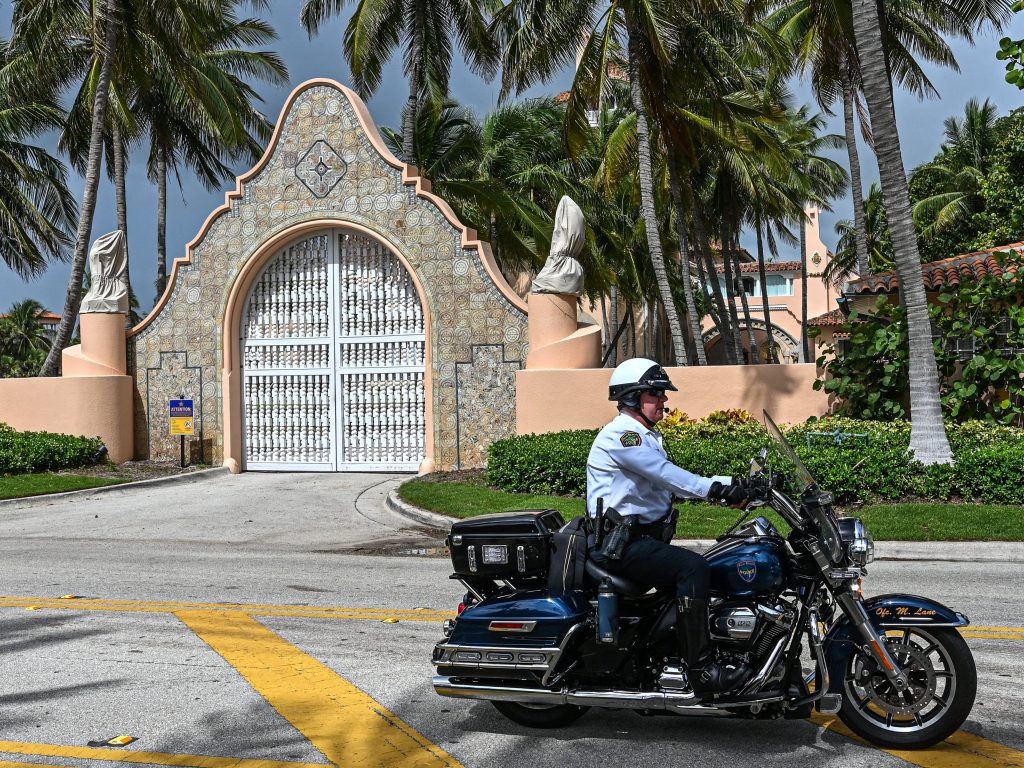- Judge Bruce Reinhart said evidence in the FBI's search warrant affidavit was "reliable."
- A Monday court order explained the judge's concerns and arguments on unsealing the affidavit.
- Reinhart is waiting on proposed redactions from the government before making a final decision.
In a court order released Monday, Federal Magistrate Judge Bruce Reinhart said he found the evidence in the FBI's affidavit seeking a search warrant for Mar-a-Lago was "reliable," but he has still not determined how much of the document to release to the public.
The affidavit, which was used to secure a search warrant of former president Donald Trump's Florida residence where 11 sets of classified materials were recovered, contains "critically important and detailed investigative facts: highly sensitive information about witnesses, including witnesses interviewed by the government; specific investigative techniques," the Department of Justice argued in a motion published by Politico.
As conservative organizations and journalism outlets have submitted legal challenges arguing the affidavit is in the public interest and should be unsealed, Reinhart said in a ruling last week that he is considering releasing portions of the document, but must consider the integrity of the DOJ's ongoing criminal investigation before determining what details can be safely released.
"Having carefully reviewed the Affidavit before signing the Warrant, I was — and am — satisfied that the facts sworn by the affiant are reliable," Reinhart, who authorized the search warrant, wrote in his 13-page order regarding his considerations about whether or not to unseal the affidavit.
Reinhart stated unsealing the document "would promote public understanding of historically significant events" and that there is "intense public and historical interest in an unprecedented search of a former President's residence."
However, he wrote, the "compelling government interests" of protecting the integrity of the investigation and search methods used by the government, as well as shielding witnesses from harassment and intimidation, are factors that weigh in favor of sealing the document.
"After weighing all the relevant factors," Reinhart wrote, "I find that the Government has met its burden of showing good cause/a compelling interest that overrides any public interest in unsealing the full contents of the Affidavit."
Before making a final determination about which details to redact and which, if any, to unseal, Reinhart ordered the Department of Justice to propose redactions that would allow portions of the affidavit to be published while protecting the ongoing investigation.
The DOJ will be required to submit its proposal by Thursday, after which Reinhart will make a final decision.
